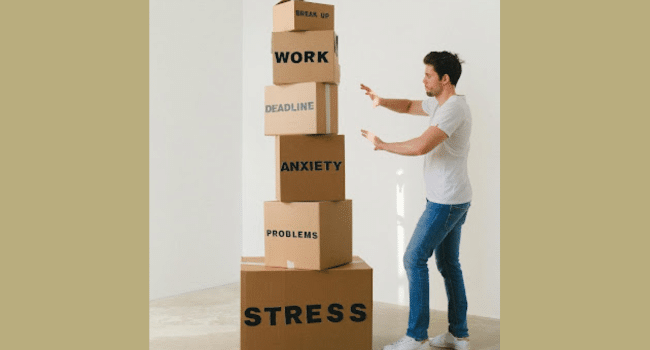Table of Contents
For many people in today’s fast-paced world, stress is an inevitable part of life. Stress management is essential for preserving general well-being, regardless of the demands of the workplace or personal obligations. While there are many ways to manage stress, it’s critical to identify coping mechanisms that don’t have unintended consequences. This article examines practical strategies for stress reduction that don’t have negative side effects.
Practice Mindfulness Meditation
Without having any negative side effects, mindfulness meditation is an effective method for lowering stress and encouraging relaxation. It entails bringing your attention to the here and now and embracing, without passing judgment, your thoughts, feelings, and physical experiences. Regular meditation has been demonstrated in several studies to reduce stress, elevate mood, and improve mental health in general.
Engage in Regular Physical Activity
Another great method to lower stress without experiencing negative side effects is to exercise. Endorphins are naturally occurring mood enhancers that are released when you exercise and can help reduce tension and anxiety. Exercise, whether it be a high-intensity workout, a brisk stroll, or a yoga class, can help reduce stress instantly and have long-term advantages for mental and physical health. Exercise also reduces stress overall by improving sleep quality, boosting self-confidence, and providing a diversion from stress.
Prioritize Self-Care Practices
Making self-care a priority is crucial to lowering stress without having negative side effects. Making time for the things that make you happy, content, and relaxed might help make you appear more energized and resilient to stress. Integrating self-care activities into your daily routine is essential for preserving balance and well-being, whether such activities include reading a book, having a warm bath, going outside, or engaging in a hobby.
Cultivate Healthy Coping Mechanisms
It’s important to establish healthy coping strategies if you wish to reduce stress without experiencing negative side effects. Consider constructive methods to handle your emotions and overcome obstacles rather than reverting to harmful coping mechanisms like binge eating, drinking too much, or abusing drugs as a stress reliever. This might entail putting limits in place, practicing assertive communication, asking friends and family for assistance, and learning to let go of things that are beyond your control.
Establish Work-Life Balance
It is crucial to preserve a good work-life balance to lower stress and avoid the unfavorable side effects of burnout and overwork. Establish boundaries between your personal and professional lives, rank your responsibilities according to significance and urgency, and plan frequent downtime to rejuvenate yourself. Maintaining a healthy balance between work and personal obligations enables you to build relationships, explore hobbies outside of work, and refuel your energy—all of which are beneficial for your general well-being and reduction of stress.
Explore Alternative Therapies and Edibles
Cannabis has drawn attention recently due to its possible medical uses in the treatment of anxiety and stress. Although there is still much to learn about this subject, recent studies indicate that certain components in cannabis, such as CBD (cannabidiol), may have anxiolytic and soothing effects. It is thought that CBD interacts with the endocannabinoid system in the body, which controls stress reactions. Hemp-derived cannabinoid gummies, for example, are gaining popularity as a convenient and discreet way to consume CBD for stress relief.
Seek Professional Support When Needed
Finally, if you’re finding it difficult to manage your stress on your own, don’t be afraid to get expert help. Therapists, counselors, and coaches, among others, can provide invaluable direction, encouragement, and stress-reduction techniques. They can offer continuous support as you strive for improved well-being, assist in determining the root reasons for your stress, and help you create unique coping mechanisms. Keep in mind that asking for assistance is a show of strength, and getting expert assistance may be a critical first step in lowering stress and enhancing your general quality of life.
Conclusion
You can reduce stress without experiencing negative side effects by implementing several tactics into your everyday routine. There are several strategies to properly manage stress, ranging from regular physical activity and mindfulness meditation to emphasizing self-care and developing good coping mechanisms. Through the application of these strategies and the pursuit of assistance when required, you may develop resilience, improve overall health, and lead a more harmonious and satisfying life devoid of the negative consequences of stress.
Read more on KulFiy
Managing Stress and Anxiety with NLP Techniques: Regain Balance and Inner Peace
Top 4 Exercises That Are Perfect for Dealing With Anxiety
5 Best Ways to Cope with Anxiety During Times of Uncertainty
